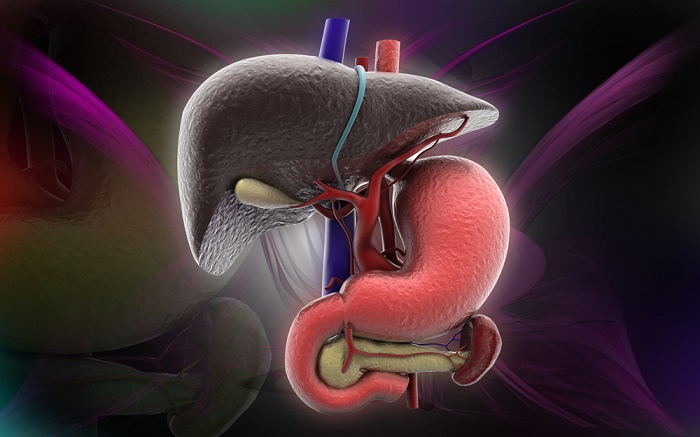Symptoms that indicate that you should purify your liver

71521892 – 3d render of male liver anatomy
Any damage or malfunction of an organ or tissue has an almost immediate impact on the harmony of our body, which begins to send signals to our attention. In this article, you will learn about the symptoms that indicate that you should cleanse your liver.

The liver is the largest organ in our body on the inside and one of the most important. Located in the upper right part of the abdomen, it has several functions, including the removal of waste and toxins from the blood, the production of bile that aids in digestion, and the secretion of various hormones and enzymes.
But when the liver is damaged by an unhealthy diet, excessive alcohol consumption, or other diseases such as cirrhosis, hepatitis, or steatosis, many of the symptoms appear. It is convenient to pay attention to these symptoms that indicate that your liver needs to be cleansed.
Table of Contents
Symptoms that indicate that you should purify the liver.
Age, weight, or whether we are very healthy on the outside are not important, the liver can have one or more conditions and only some symptoms can reveal that we already need to purify it and improve liver function. The importance of having the liver in good health is essential for our entire body, in addition to helping us feel good, it also helps prevent many diseases, including those that also affect the gallbladder.
The liver can be affected in many ways, and most of the time it happens from a poor diet and acquired bad habits, for example, regular consumption of refined sugar, foods that were not processed well, toxin overload, and more. All of this can lead to the following symptoms that warn of an imminent liver cleanse to improve health.
Chronic fatigue.
A chronic and persistent state of fatigue is also one of the most telling signs of a damaged liver. Failure to eliminate toxins more effectively will cause them to accumulate in the liver, producing overwork and a general state of fatigue. One of its main causes is liver dysfunction, however, it can also be caused by other conditions that require attention and a timely evaluation to determine its origin.
Loss of appetite.
It is also one of the most telling signs of liver damage. So, if you lose your desire to eat, or if you feel full after a small snack, it is recommended to consult, especially if your loss of appetite is accompanied by significant weight loss. Perhaps behind these symptoms is the alarm that indicates that it is imminent to purify the liver.
Digestive problems.
When the liver is damaged, the production of bile becomes insufficient, which hinders the digestion process and favors the appearance of digestive problems such as nausea, vomiting, constipation or diarrhea.
Bloating and bloating after meals, along with the apparent inability to lose weight regardless of diet or exercise, are possible indicators of liver dysfunction.
Change in color of urine.
Orange, amber, or brown urine can be due to high levels of bilirubin. The latter is a yellow pigment that results from the natural breakdown of hemoglobin and is generally eliminated by the liver. But when you are unable to do it properly, bilirubin is excreted in your urine.
Depression and mood swings.
An intoxicated liver can be the catalyst for various forms of depression. It can generate a general bad mood, feelings of despair and occasional outbursts of anger can be caused when the liver is overloaded, revealing that we need to purify it urgently if we want to regain control of our emotions.
Many people do not realize that proper liver function plays a significant role in emotional health. The annoyances of a bad day are one thing, but chronic mood swings accompanied by a lack of physical energy are another.


